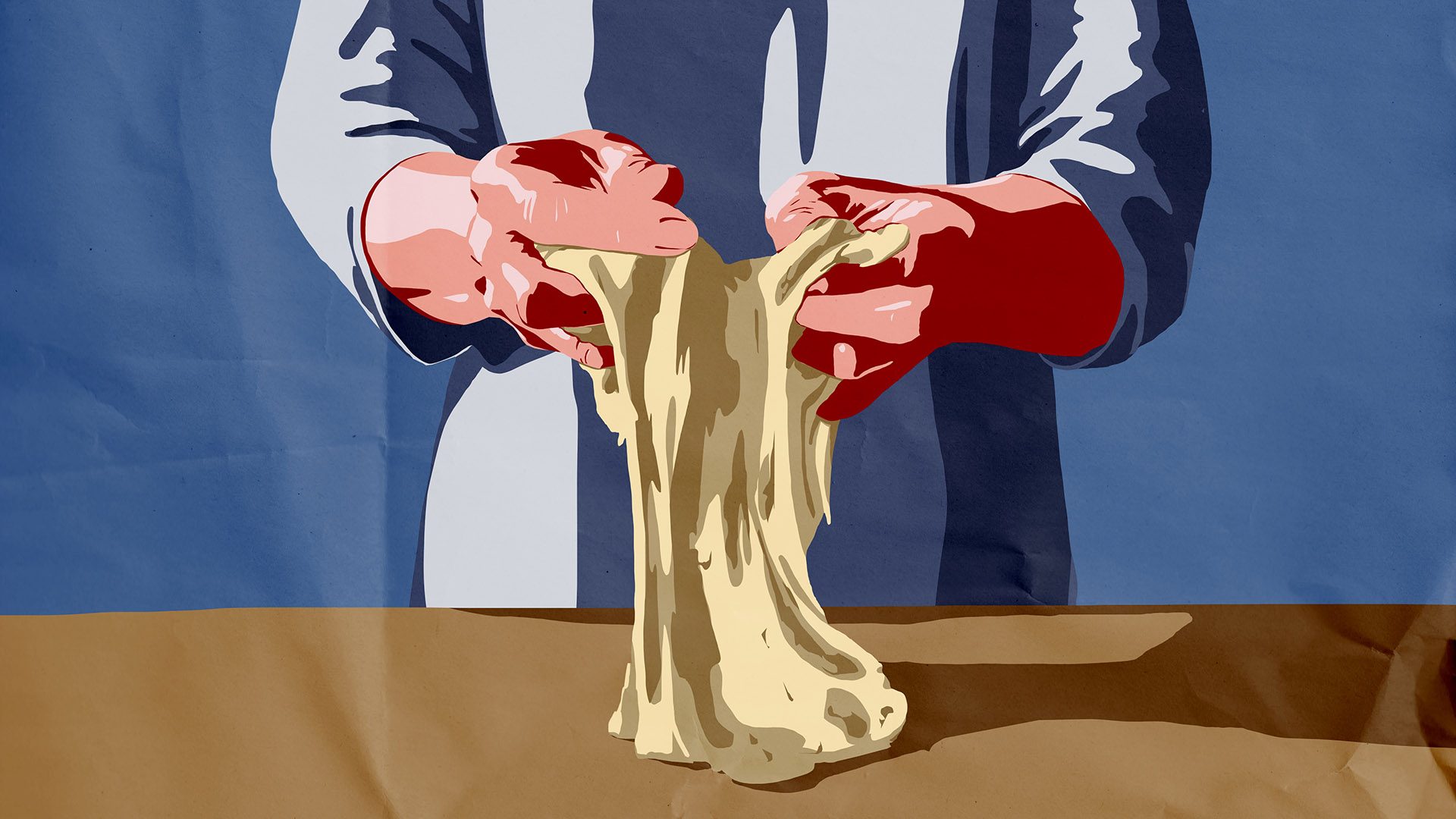Sourdough is on the rise. Though the COVID-19 pandemic has incited fear, panic, and partisan rancor, it has also revived older traditions that take time to cultivate and master, like bread baking. Many of us have decided to use the extra time on our hands in quarantine for baking sourdough bread.
Major news outlets have taken note of sourdough’s surge in popularity. The Washington Post reported on yeast and flour shortages brought on by the sudden influx of bread bakers. (Insider tip: when the supermarket runs out of flour, check your local farms. I ordered organic bread flour, wheat flour, and all-purpose flour in bulk from an organic farm near Durham, North Carolina.)
CNN published a piece about how baking sourdough was helping people cope with the anxiety associated with the pandemic. One writer confessed how the process of baking sourdough helped her handle the isolation. The New Yorker posted a humorous piece that chronicled the existential thoughts of sourdough starter.
At one point in history, all bread was sourdough—“a dough made of flour and water fermented without yeast for baking bread.” Bread experts attribute leavening bread to the Egyptians, who used wild yeast (naturally fermented from the air, flour, and even our bodies) for brewing beer and baking bread. They even depicted bread loaves in their wall paintings. And yet we also know the Israelites leavened their bread, because the Pentateuch describes their exodus from Egypt as happening so quickly they only had time to bake bread without leaven (a synonym for starter, sponge, or mother).
Bread-making spread from Egypt and Israel to Greece, Rome, and France, with French sourdough bread the most celebrated. The French maintained high standards for baking sourdough for centuries. Eventually French sourdough reached San Francisco by way of the great Klondike Gold Rush of 1898. Prospectors and frontiersmen carried sourdough on their person to keep the natural fermentation process going. By this practice the prospectors themselves came to be known as “Sourdoughs.”
But our world went and got itself in a big hurry and, by the 20th century, commercial yeasts rose to prominence. The speed and convenience of modern bread-making rendered the time-intensive process of sourdough baking largely a thing of the past.
Beauty Requires Time
The Victorian artist and critic John Ruskin said he desired his readers to be people of sight, not of pace. He was famous for saying that the most beautiful things in the world are also the most useless, a controversial statement in our hyper-pragmatic, “git-r-dun” world. His point: beauty demands our time and attention to see; and beautiful things require time to make.
Beauty demands our time and attention to see; and beautiful things require time to make.
Baking sourdough takes time, commitment, and perseverance. It can help increase our capacity for patience—that fruit of the Spirit (Gal. 5:22) so often missing in our rushed, hectic modern world. My friend and lifestyle writer Bethany Douglass says, “Breadmaking cultivates both patience and expectation, a tension that requires us to slow down and pay attention. The bubbles. The rise. The folds. Each stage invites us to pause, to notice, to listen.”
Lessons from Sourdough’s Slower Pace
Baking sourdough, for me, is not only a culinary delight but something that teaches me what I call the spiritual discipline of pace. This COVID-19 lockdown is slowing us down, but the slow pace of sourdough in particular is teaching me the following:
1. I must slow down and care for something that, if left alone, will ruin.
I share the starter-feeding duties with my two oldest daughters. Feeding the starter takes all of three minutes, but we must devote ourselves to feeding it, or it will die. Feeding teaches us the joy of commitment—of sticking with something even if it gets boring or monotonous. We need this discipline in our fidgety age of distraction.
2. God’s goodness can be found all over the place, if we take time to look for it.
The slow pace of sourdough affords me and my daughters time to bond over the glories of bread baking. We marvel over the rise of the leaven. We take turns stretching the dough. We revel in the morning fragrance of bread in the oven. We “taste and see that the LORD is good” (Ps. 34:8).
3. Slower cadences in life are better than convenience.
Modern convenience can be a cadence-killer. We too often opt for the quick solution. “Just stop by the store,” we say. “Just order it online.” Baking sourdough depends on my willingness to make a choice outside of convenience. I must ransom my time for an end product I may ruin or master. If I ruin it, I’ve only lived and learned. If I master it, well, then, you’re emailing me for my recipe.
Baking sourdough bread isn’t a holy sacrament. But it does remind us that some things in this world call us to slow our pace, roll up our sleeves, and stretch the dough. Jesus even compared the kingdom of God to rising dough (Matt. 13:33). Just like the parable of the mustard seed that immediately precedes it (Matt. 13:31–32)—among other food and agricultural metaphors in the Gospels—the parable of leaven hints at the growth, process, and patience that define God’s working in the world.
Sourdough baking invites us to contemplate a pace like this, and to rejoice in the mystery of how a life-giving loaf takes shape.
